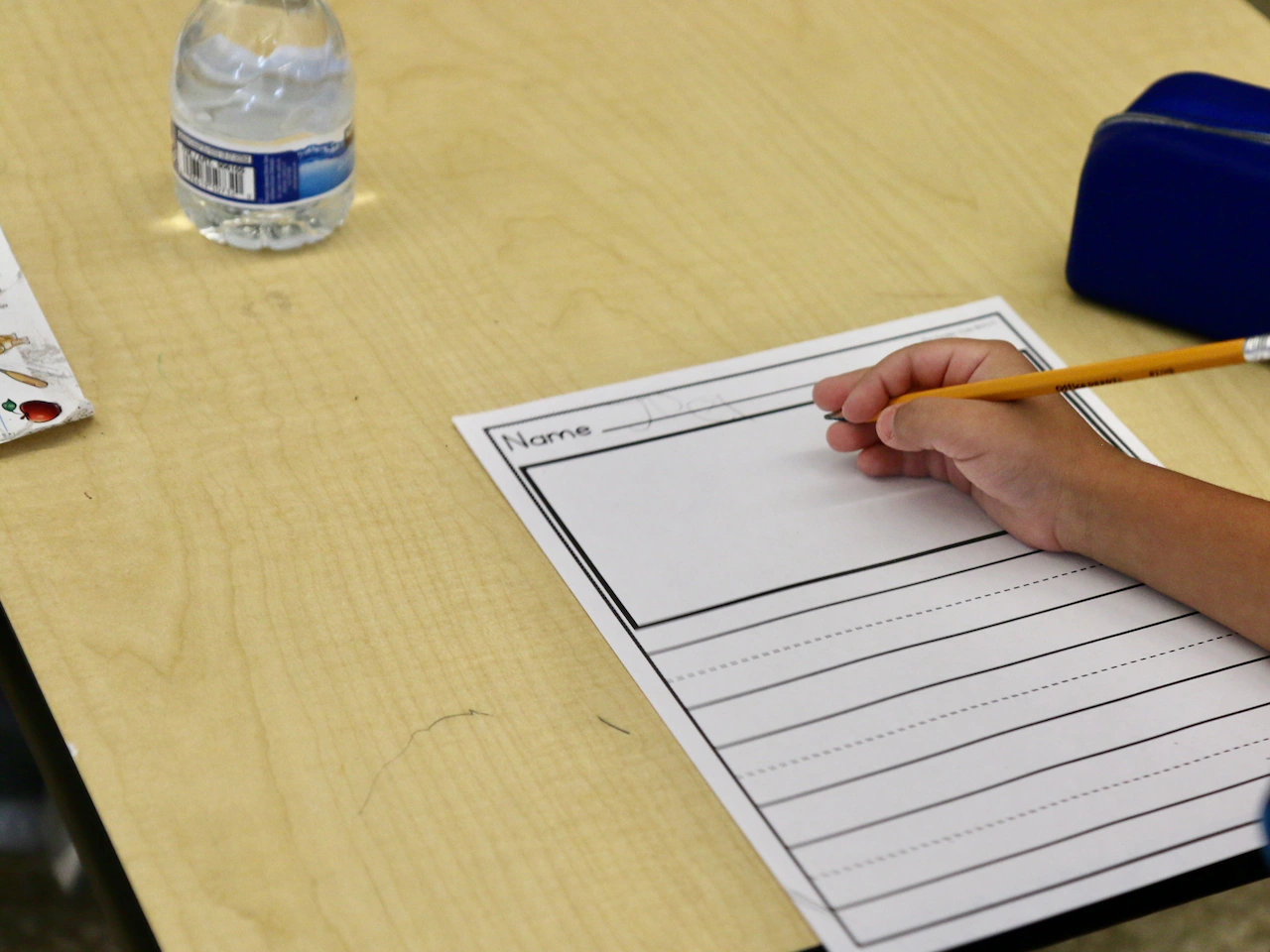
Local immigration attorneys and citizenship teachers are preparing immigrants in reaction to a flurry of changes to the naturalization process that could make it more challenging to obtain U.S. citizenship.
The U.S. Citizenship and Immigration Services (USCIS) announced policy changes in the last few months instructing officers administering the naturalization interview to test applicants on more questions. The agency also gave its officers more leeway to optionally request that applicants show additional evidence of “good moral character.”
It’s still too early to determine how the changes could affect immigrants scheduled for naturalization tests, said several local immigration attorneys and teachers who administer citizenship classes.
Elmi Mahamoud, an immigrant from Djibouti, became a citizen in 2023, and now helps John Schwarz, a citizenship teacher at Literacy Minnesota, teach the citizenship classes on Saturdays. More students were enrolled in the class around this time last year, Mahamoud said, adding that he’s unsure why the number has dropped. But he remains optimistic.
“I see this as a temporary thing, because of what’s happening around,” he said, referring to changes in the naturalization process. “I’m expecting more students to enroll in the coming months.”
To apply for U.S. citizenship, immigrants need to have lawful permanent resident status, also known as a green card, and must have lived in the country for at least five years. The residency requirement is three years for immigrants who are married to a U.S. citizen. Immigrants cannot apply if they’ve committed certain crimes.
The naturalization interview is conducted in person with a USCIS officer, and includes tests of an applicant’s ability to write, read and speak English. Applicants must also take a civics test about U.S. history and government, and must also supply background information, including their country of citizenship and employer’s name.
Naturalized U.S. citizens can vote in elections and apply for a U.S. passport, and cannot be deported, among other benefits. The pass rate for the naturalization test and interview was 90% in 2022, according to the most recent data available from the federal citizenship agency.
Starting in October, immigrants applying for U.S. citizenship will be tested on more civics questions and might be required to submit additional records to USCIS officers. The agency’s officers are classified as special agents; some were authorized in September to carry firearms. Several local attorneys who recently visited the USCIS Minneapolis office told Sahan Journal that they did not see any officers carrying firearms.
The agency also announced on Sept. 17 that it is doubling the number of questions applicants must answer correctly. Applicants will be asked up to 20 questions instead of 10, and must now answer 12 questions correctly, instead of six, to pass the exam. Immigrants previously studied 100 questions to prepare for the test, and must now study 128.
Other initiatives will be announced by USCIS in the coming weeks and months to “further enhance the integrity of the naturalization process,” a news release from the agency said.
The new initiatives are “ensuring” that all immigrants are “fully assimilated and will contribute to America’s greatness,” USCIS spokesperson Matthew Tragesser said in a statement.
Corleen Smith, director of immigration services at the International Institute of Minnesota, said there will be “multi-faceted consequences” from the new civics test.
“It’s not just the students having to learn more information, it’s also training the immigration officers and the staff about the new updates and what that involves for the interview,” Smith said. “That means less people are going to become citizens, and more frustration.”
In mid-August, USCIS issued two new policy memos for its officers in denying or approving U.S. citizenship for immigrants: The officers can conduct a “neighborhood investigation” on applicants by requesting letters from their neighbors, employers and co-workers. Officers were also told to consider an applicant’s contributions to the community and other attributes, such as family caregiving and education level.
“The idea of it has that chilling effect for folks being like, ‘What are they gonna do with this?’” said Caroline Ostrom, a Minneapolis-based immigration attorney. “They’re [USCIS] basically putting this in their toolbox, but the officer definitely has the discretion to waive that in every case.”
Applicants for citizenship usually submit tax documents, and, if they exist, criminal records, attorneys said. Under the new practices announced in August, the federal government could also look for more information, such as community service or employment achievements.
Local immigration attorneys said they recently started asking clients to prepare more documents such as recommendation letters from employers, proof of education and work achievements, before submitting citizenship applications.
Paschal Nwokocha, a Minneapolis immigration attorney, said if clients have a criminal history, even as low as a speeding ticket, they’re asked to collect letters from peers that attest to their “rehabilitated” character.
“We just don’t want to risk any denial at this stage or delay at this stage,” he said.
This story comes to you from Sahan Journal, a nonprofit newsroom dedicated to covering Minnesota’s immigrants and communities of color. Sign up for a free newsletter to receive Sahan’s stories in your inbox.



